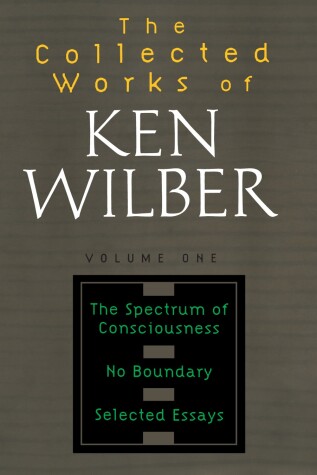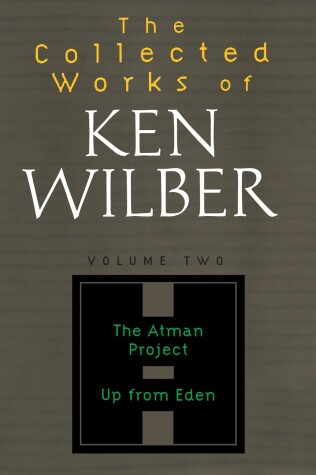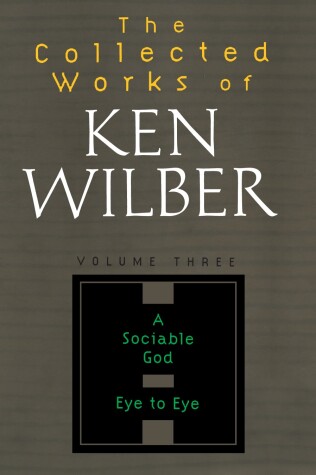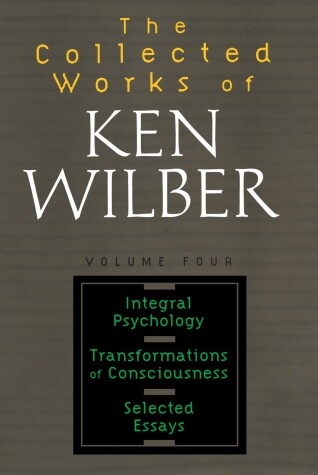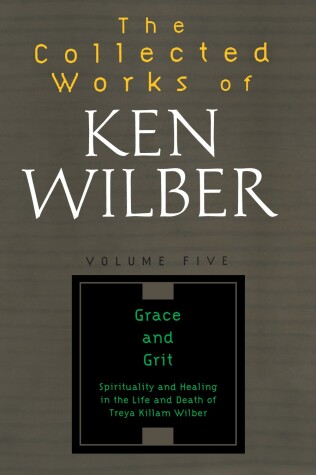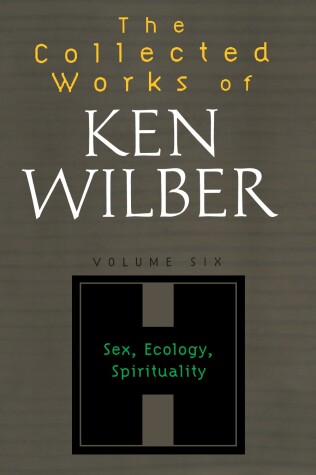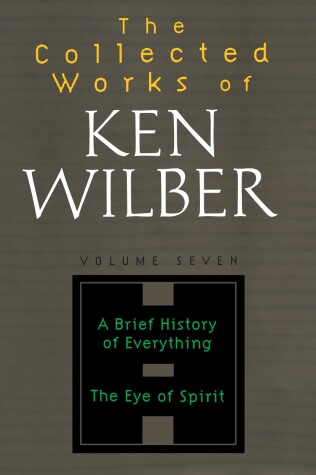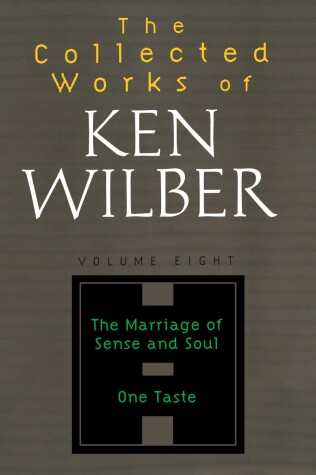The Collected Works of Ken Wilber
8 primary works
Book 1
• The Spectrum of Consciousness (1977)—one of the founding texts of transpersonal psychology—introduces the full-spectrum model, showing how the psychological systems of the West can be integrated with the contemplative traditions of the East.
• No Boundary: Eastern and Western Approaches to Personal Growth (1979) is a simple yet comprehensive guide to psychologies and therapies available from both Western and Eastern sources.
• Several important early articles: "The Psychologia Perennis," "Are the Chakras Real?" and "Where It Was, I Shall Become."
Book 2
• The Atman Project: A Transpersonal View of Human Development (1980) unites Eastern and Western approaches into a single, coherent framework, integrating views from Freud to Buddha, Gestalt to Shankara, Piaget to Yogachara, Kohlberg to Krishnamurti.
• Up from Eden: A Transpersonal View of Human Evolution (1981) describes evolution as a magnificent journey of Spirit-in-action, drawing on theorists from Jean Gebser to Jürgen Habermas.
• The essay "Odyssey: A Personal Inquiry into Humanistic and Transpersonal Psychology" and a New Age interview with Ken Wilber.
Book 3
• A Sociable God: Toward a New Understanding of Religion (1982) is a scholarly introduction to a psychology and sociology of religion that presents a system of reliable methods by which to determine the authenticity of any religious movement.
• Eye to Eye: The Quest for the New Paradigm (1983) examines three realms of knowledge: the empirical realm of the senses, the rational realm of the mind, and the contemplative realm of the spirit. This book includes important essays such as "The Pre/Trans Fallacy" and "A Mandalic Map of Consciousness."
Book 4
• Integral Psychology, a concise version of Wilber's long-awaited textbook of transpersonal psychology, presenting one of the first truly integrative models of consciousness, psychology, and therapy.
• Charts correlating over one hundred developmental and evolutionary theories, ranging from ancient mystical traditions to modern theorists.
• Essays on human development, art, meditation, spirituality, yoga, women's studies, death and rebirth, science and mysticism, and transpersonal psychotherapies.
• Wilber's thoughtful replies to criticisms of his work.
Book 5
Book 6
After arriving at the emergence of mind, Wilber traces the evolution of human consciousness through its major stages of development, pointing out that at each stage there is the "dialectic of progress"—every increase in consciousness is bought at a price: new freedom also means new license to choose destruction. He particularly focuses on the rise of modernity and post-modernity—what they mean, how they relate to gender issues, to psychotherapy, to ecological concerns, and to various liberation movements. Most important, he asks: Can spiritual concerns be integrated with massive developments of the modern world?
This edition is updated and includes a new introduction placing it in the context of the Collected Works .
Book 7
• A Brief History of Everything (1996) "Combining spiritual sensitivity with enormous intellectual understanding and a style of elegance and clarity, [this book] is a clarion call for seeing the world as a whole."— San Francisco Chronicle .
• The Eye of Spirit: An Integral Vision for a World Gone Slightly Mad (1997) uses the spectrum model to create an integral approach to psychology, spirituality, anthropology, cultural studies, and art.
• "An Integral Theory of Consciousness," an essay previously unpublished in book form, presents one of the first theories to integrate first-, second-, and third-person accounts of consciousness.
Book 8
• In The Marriage of Sense and Soul: Integrating Science and Religion (1998), Wilber takes on the centuries-old problem of the relationship between science and religion. After surveying the world's great wisdom traditions and extracting features they all share, he offers compelling arguments that not only are these compatible with scientific truth, they also share a similar scientific method.
• One Taste: The Journals of Ken Wilber (1999) is a lively and entertaining glimpse into a year in the life of Ken Wilber—as well as a thought-provoking series of short essays on current trends in spirituality and psychology, daily reflections, meditation experiences, and advice to spiritual seekers.
